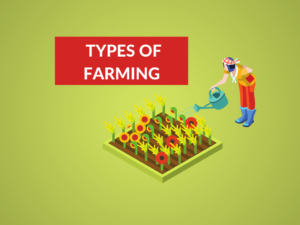The Differences Between a Rancher and a Farmer
Agriculture is a vital sector in many economies around the world, and it is made up of various occupations, including both ranchers and farmers. Although these terms may sometimes be used interchangeably, they are not synonymous. In this article, we will explore the differences between a rancher and a farmer.
What is Rancher?
A rancher is an individual who owns or manages a ranch, which is a large farm typically used for raising livestock such as cattle, sheep, or horses. Ranchers are known for their expertise in animal husbandry, and they are responsible for caring for the animals from birth to sale.
Examples of Rancher
Some examples of rancher include:
– A cattle rancher who raises and sells beef cattle for meat
– A sheep rancher who raises and sells sheep for wool and meat
– A horse rancher who breeds and trains horses for racing, rodeos, or other equestrian sports
Uses of Rancher
Ranching has several uses, including:
– Food production: Ranchers play a critical role in producing meat, poultry, dairy products, and other animal-based food products.
– Cultural heritage: Ranching is often associated with the American West and is an important part of the region’s cultural heritage.
– Ecological conservation: Some ranches are designed to be sustainable and benefit wildlife and habitats.
What is Farmer?
A farmer, on the other hand, is an individual who cultivates crops and/or raises animals, such as cows, pigs, and chickens. Farming is typically less specialized than ranching and involves a wide range of activities, such as planting, harvesting, irrigation, and pest control.
Examples of Farmer
Some examples of farmer include:
– A wheat farmer who grows and sells wheat for human consumption or animal feed
– A dairy farmer who raises and milks cows for dairy products like cheese, butter, and yogurt
– A vegetable farmer who cultivates vegetables for direct sale or for use in processed foods
Uses of Farmer
Farming has various uses, including:
– Food production: Farmers are responsible for the production of fruits, vegetables, grains, and other crops that feed people and animals.
– Economic development: Many rural communities depend on agriculture for their livelihood, and farmers contribute to the local economy by providing employment opportunities and income.
– Environmental stewardship: Farmers play an essential role in promoting sustainable agriculture and protecting natural resources like soil, water, and biodiversity.
Differences Table
| Difference Area | Rancher | Farmer |
|---|---|---|
| Type of Farming | Ranchers focus mainly on livestock production and care. | Farmers grow crops or raise livestock for food, fiber, or fuel. |
| Land Size | Ranches are typically larger than farms (more than 1000 acres). | Farms can vary in size, from small family farms to large commercial operations. |
| Specialization | Ranchers are more specialized than farmers and typically focus on a single type of livestock. | Farmers often raise multiple crops or livestock while also cultivating different types of crops. |
| Income | Ranchers make their income by selling livestock or animal products, such as meat, wool, or hides. | Farmers make their income by selling crops, livestock, or value-added products. |
| Equipment | Ranchers typically use specialized equipment, such as horse trailers, stock trailers, and cattle chutes, to handle livestock. | Farmers typically use tractors, plows, and other equipment to prepare soil, plant seeds, and harvest crops. |
| Sustainability | Ranching can have a significant impact on the environment, particularly on water resources and land degradation. | Farming can also have an impact on the environment, but sustainable methods can help to mitigate negative effects. |
| Location | Ranches are more likely to be located in rural or remote areas. | Farms can be found in rural or urban areas, depending on the type of farming and the market demand. |
| Labor | Ranchers often rely on hired labor or volunteer cowboys to help handle livestock. | Farmers may also hire laborers to help during planting or harvest seasons, but they often rely on family members to help run the farm. |
| Business Model | Ranching is often a family business passed down from generation to generation. | Farming can be a family business or a corporate venture, and farmers may lease land or sharecroppers to work on it. |
| Crops/Livestock | Ranchers typically raise and sell livestock, such as cattle, horses, or sheep. | Farmers grow a wide variety of crops, from corn and wheat to vegetables and fruits. |
Conclusion
In conclusion, although both ranchers and farmers are essential to the agricultural sector and the economy, they have their differences. Ranchers focus on livestock production, while farmers grow crops and/or raise animals for food, fiber, or fuel. While ranches tend to be larger and more specialized, farmers are often more diversified. Both professions require hard work, dedication, and a commitment to using sustainable and environmentally responsible methods.
Knowledge Check
1. What is a rancher?
Answer: A rancher is an individual who owns or manages a large farm typically used for raising livestock.
2. What is a farmer?
Answer: A farmer, on the other hand, is an individual who cultivates crops and/or raises animals.
3. What is the main difference between a rancher and a farmer?
Answer: Ranchers focus mainly on livestock production and care, while farmers grow crops or raise livestock for food, fiber, or fuel.
4. What type of farming is ranching?
Answer: Ranching is a type of livestock farming.
5. What type of equipment does a rancher typically use?
Answer: Ranchers typically use specialized equipment, such as horse trailers, stock trailers, and cattle chutes, to handle livestock.
6. Are ranches typically larger or smaller than farms?
Answer: Ranches are typically larger than farms (more than 1000 acres).
7. What is the main income source for ranchers?
Answer: Ranchers make their income by selling livestock or animal products, such as meat, wool, or hides.
8. Do farmers often use multiple types of equipment?
Answer: Yes, farmers typically use a wide variety of equipment, from tractors and plows to harvesters and irrigation systems.
9. Can farming impact the environment?
Answer: Yes, farming can have an impact on the environment, particularly through the use of pesticides, fertilizers, and heavy machinery that can cause soil erosion.
10. Can ranching be passed down from generation to generation?
Answer: Yes, ranching is often a family business passed down from generation to generation.
Related Topics
If you found this article helpful and want to learn more about the agricultural sector, you might be interested in the following similar topics:
– The Pros and Cons of Sustainable Agriculture
– The Advantages and Disadvantages of Large-scale Farming
– The Benefits of Local Food Systems
– The Future of Agriculture: Trends and Innovations



